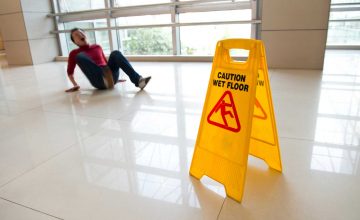Accidents at Work Personal Injury Compensation Claims Advice – UK, England & Wales/Scotland/Northern Ireland & Republic of Ireland
Have you been injured at work?
If you have been injured at work in an accident that wasn’t your fault then you may be entitled to claim compensation. Your employer owes you a duty of care in the workplace under the law including under the many workplace regulations covering
- Safe practices,
- A safe working environment,
- Providing adequate training and suitable equipment/personal protection equipment.
Duty of Care
If your employer has been negligent or breached their duty of care towards you resulting in personal injury to you then you may be entitled to claim compensation.
Worried about bringing a personal injury compensation claim against your employer? Don’t worry! Here’s why
If you are worried that the personal injury compensation claims process following your accident at work will affect your job then our no win no fee Solicitors can reassure you on this issue. Your right to make a claim for personal injury compensation following an accident at work is enshrined in the law and your job is protected by Employment law.
No win no fee
If you have been injured in an accident at work why not let our no win no fee panel Solicitors deal with your personal injury claim for you? If you have been injured in an accident at work you have three years from the date of that accident or three years from when you became aware that your injuries were related to your accident at work in which to claim injury compensation.
Our no win no fee panel Solicitors have gained experience in accidents at work while advising many injured parties/claimants via their role as Trade Union Solicitors.
What to do if I wish to bring an accident at work compensation injury claim
As soon as your physical pain/injuries allow it you should gather the following evidence to aid the claims process:
- Negligent Third party employer’s Liability Insurance details including policy number (as the compensation settlement will likely come from the insurer);
- Photographs of the accident scene;
- Photographs of injuries following the accident;
- Photographs of scarring following the accident;
- Details of those who witnessed the accident;
- Details of witnesses who can provide evidence on previous similar workplace accidents/injuries or comment on the poor health/safety practices in the workplace;
- Incident Report Form and name/position of person accident reported to;
- Ensure injuries are recorded/noted by medical Practitioners qualified to treat injuries such as Paramedics/Hospital/GP/Physiotherapist;
- If medication is required for your injuries ensure this is obtained on prescription as this is easily evidenced;
- CCTV of the accident;
- RIDDOR Report;
- Accident report forms detailing any other health & safety agencies.
Financial Loss compensation claims
As well as compensation for injuries you may be able to claim for financial loss such as loss of earnings (past and future), care, physiotherapy, travel to and from medical appointments, damaged possessions and home modifications. You should keep receipts to prove your loss.
Common Accident at Work injury compensation claims
An example of a common workplace injury compensation claim is for noise induced hearing loss/industrial deafness. A noise induced hearing loss/industrial deafness claim resulting from an accident at work can result in up to a £250,000.00 injury compensation settlement for general damages.
In addition to this, the Plaintiff/Claimant would be entitled to claim for financial/special damages/losses as above to include loss of earnings (past and future), care, physiotherapy, travel to and from medical appointments, damaged possessions and home modifications.
Our no win no fee panel Solicitors can advise you on the value of your claim in the UK, England & Wales/Scotland/Northern Ireland & Republic of Ireland.
Common workplace personal injury accident/industrial illness (industrial disease) claims for injury compensation:
- Noise Induced Hearing loss/Industrial deafness claims:
- Asbestosis claims;
- Pleural Plaques claims:
- Workplace Slips, Trips, Falls;
- Ladder fall claims;
- Forklift Claims;
- Repetitive Strain Injury (RSI) claims;
- Back injury claims:
- Foot injury claims:
- Arm injury claims;
- Leg injury claims;
- Neck injury claims;
- Shoulder injury claims;
- Sight loss claims;
- Scaffolding claims;
- Vibration White finger Claims;
- Head injury claims;
- Chest injury claims;
- Tennis elbow claims.
The Law
In the UK you have three years’ from the date of your accident or three years’ from the date that you become aware that the cause of your injuries were linked to your work in which to process your claim for injury compensation.
Sometimes the time limit for claiming personal injury compensation can be extended. For example, you may not be aware of the extent of your injuries until years after the accident – your noise induced hearing loss from working with heavy machinery/tools may not develop until after you have retired.
If more than three years passes before you become aware of the cause of your injuries you will have three years from that date on which you became aware of the cause of your injuries in which to process your claim for accident at work compensation.
In Ireland you have two years’ from the date of your accident or from the date that you became aware that your injuries were related to your work in which to process your claim for personal injury compensation.
Get In Touch!
It is always best however to begin the injury claim process as soon as possible so do not delay – get in touch with us today for free no win no fee injury compensation claim advice.
Let our no win no fee Solicitors take the stress away and get you the injury compensation you deserve by guiding you through the compensation claims process from start to either settlement of your claim or Court. Don’t forget to try our injury compensation claim calculator to value your claim!



